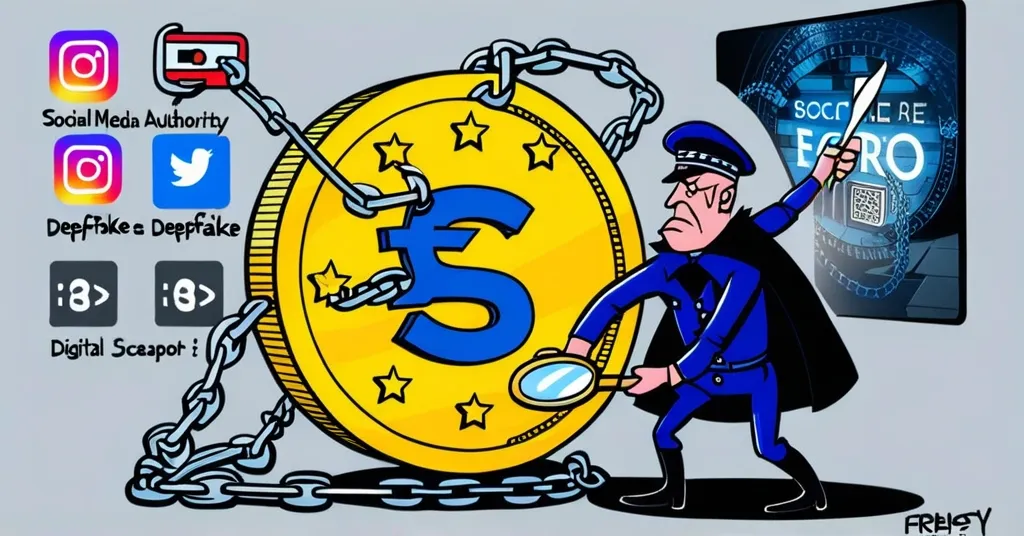Crypto Scams Cost France €500 Million Annually as Authorities Ramp Up Countermeasures

French Financial Fraud Losses Soar to €500 Million Annually Due to Crypto Scams
Crypto-related scams have become a formidable challenge for France, driving financial fraud losses to approximately €500 million each year, as reported by the Autorité des Marchés Financiers (AMF). Despite a decrease in reported complaints, the sheer impact of these scams remains a significant concern, with fraudulent tactics becoming ever more sophisticated. The rise of social media scams, influencer involvement, and identity theft has led French authorities, including the AMF, to ramp up regulatory measures and public awareness campaigns.
Key Points of Interest
- Crypto scams contribute to €500 million in annual financial fraud in France.
- The average victim’s loss is €29,000, with some losses reaching €69,000.
- Scam victims have tripled since 2021, affecting 3.2% of French adults.
- Men under 35 are most vulnerable, lured by promises of quick wealth.
- Fraud tactics include deepfake videos, fake news, and impersonation of officials.
- Nearly 5,000 platforms are blacklisted, and 350 websites blocked by authorities.
- Section J2 of the Paris Public Prosecutor’s Office has seized €645 million in assets since 2020.
- Public awareness campaigns aim to educate young investors and curb scam promotion by influencers.
The Autorité des Marchés Financiers (AMF) underscores that financial scams in France have expanded beyond traditional fraud, veering significantly toward crypto-asset investments. The AMF warns the public to remain cautious and skeptical of investment opportunities that appear “too good to be true.”
Efforts to counteract this growing threat involve collaboration between entities like the Paris Public Prosecutor’s Office, the Autorité de Contrôle Prudentiel et de Résolution (ACPR), and the Direction Générale de la Concurrence, de la Consommation et de la Répression des Fraudes (DGCCRF). This joint endeavor emphasizes blacklisting unauthorized platforms, blocking scam websites, and launching targeted public awareness initiatives.
Particularly concerning is the targeting of young men under 35, who often fall prey to the allure of quick financial returns. Scammers employ deepfake technology, fake press articles, and impersonations of officials, complicating the task of catching and prosecuting these criminals. Authorities are combating this by blacklisting platforms and taking legal actions against those promoting fraudulent schemes, including influencers who may unwittingly or knowingly endorse these scams.
French authorities have already blacklisted nearly 5,000 platforms and blocked over 350 websites in their fight against crypto scams. Public awareness campaigns are strategically directed at young investors and influencers, who are often the most susceptible to such schemes.
Key Questions and Takeaways
- What is the estimated annual loss due to crypto scams in France?
Approximately €500 million.
- Who are the most vulnerable demographics to these scams?
Men under 35, driven by a desire for quick wealth.
- What methods are scammers using to deceive victims?
Identity theft, deepfake videos, fake press articles, and impersonating officials.
- How are French authorities responding to the rise in financial scams?
By blacklisting unauthorized platforms, blocking websites, and launching public awareness campaigns.
- What actions are being taken against influencers promoting fraudulent platforms?
Inspections, cease-and-desist orders, and legal proceedings.
The substantial impact of crypto-related scams on financial fraud in France underscores the critical need for vigilance and regulatory collaboration. The concerted efforts of French authorities, coupled with strategic public education initiatives, are pivotal in tackling this multifaceted threat. By leveraging technological advancements and focusing on demographic targeting, these measures aim to provide a robust response to the evolving fraud landscape, offering a glimmer of hope in the fight against financial deception.



